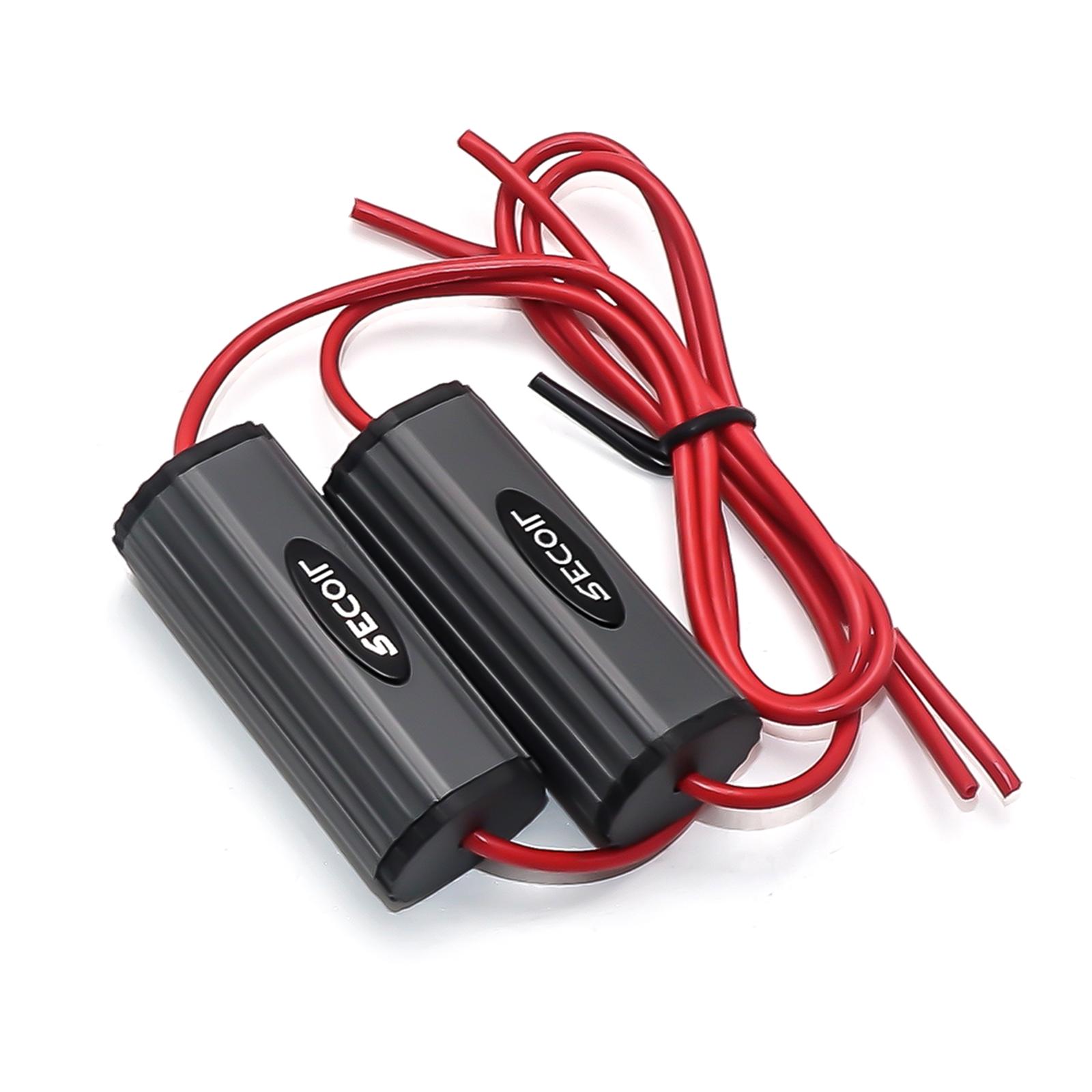Notifications

11 minutes, 52 seconds
-40 Views 0 Comments 0 Likes 0 Reviews

When you crank up your favorite track, the bass should hit hard, the mids should shine, and the treble should sparkle. But all too often, that deep, thumping bass can overwhelm your entire sound system, ruining the balance and damaging your speakers and tweeters. The culprit? Low-end frequencies that your smaller speakers and tweeters just can’t handle. But fear not—bass blockers are the perfect solution to save your sound system and ensure that every note, from low rumble to high squeal, sounds crystal clear.
In this blog, we’ll explore how bass blockers for speakers and bass blockers for tweeters can not only protect your equipment but also enhance your overall listening experience. Whether you’re a car audio enthusiast or simply looking to get more out of your home setup, bass blockers are an essential part of achieving that perfect, well-balanced sound.
What are Bass Blockers, and Why Do You Need Them?
Bass blockers are simple yet highly effective devices designed to filter out low frequencies from speakers that aren’t equipped to handle them. These blockers act as a barrier, preventing deep bass from reaching smaller speakers and tweeters that can’t reproduce those frequencies accurately or without distortion.
When low frequencies are sent to speakers that can’t manage them, it results in two major issues: distortion and potential damage. The sound quality degrades, and your equipment becomes more vulnerable to wear and tear. By installing bass blockers, you create a more harmonious sound system that ensures each speaker is doing exactly what it was designed to do, maximizing both longevity and sound quality.
How Bass Blockers Protect Your Speakers and Tweeters?
A good sound system relies on each component working in perfect harmony. When bass frequencies are improperly sent to your smaller speakers or tweeters, it can cause them to struggle. Over time, this stress can lead to speaker damage, blown drivers, or even complete failure.
Bass blockers for tweeters, in particular, are essential because tweeters are specifically designed to handle high-frequency sounds. Sending bass through them will not only produce muddled sound but could also cause physical damage due to the strain of trying to reproduce frequencies they weren't meant to handle. Bass blockers for speakers, on the other hand, ensure that only the frequencies your midrange speakers can handle reach them, preventing distortion and maintaining the clarity of your sound.
The Benefits of Using Bass Blockers
How to Choose the Right Bass Blocker for Your System?
Not all bass blockers are created equal, and the right choice depends on your specific sound system. For car audio enthusiasts, there are plenty of bass blockers designed specifically for automotive systems, where bass frequencies can be especially problematic. When selecting bass blockers, consider the following:
The Science Behind Bass Blockers: How They Work
Bass blockers are essentially capacitors, designed to block low-frequency signals while allowing high-frequency signals to pass through. The way they work is rooted in basic electronics—capacitors can filter signals based on frequency. Low frequencies struggle to pass through a capacitor, while higher frequencies, which tweeters and speakers are designed to produce, sail through without obstruction.
These capacitors come in various ratings, and depending on your speakers’ specifications, you’ll need a bass blocker that is designed to filter out the correct range of low frequencies. In simple terms, bass blockers act like a gatekeepers, letting only the frequencies your speakers can handle through.
Are Bass Blockers Necessary for Every Sound System?
If you have high-end speakers that are designed to handle a wide range of frequencies, you might not need bass blockers at all. However, if you’re running a more budget-friendly or entry-level system, or if you’re using multiple speakers with different frequency handling capabilities, bass blockers are an essential addition.
For example, many car audio systems include woofers that are designed to handle low frequencies and tweeters that specialize in high frequencies. Without bass blockers, the tweeters can be overwhelmed by low-end sounds, while the woofers might not be able to effectively reproduce the full range of frequencies. This is where bass blockers for speakers and bass blockers for tweeters come in handy, ensuring that each component of your system does what it was designed to do.
Installation Tips: How to Add Bass Blockers to Your System?
Adding bass blockers to your system isn’t a difficult process, but it does require some basic knowledge of your sound system’s wiring. Here's how you can get started:
The Role of High-Quality Amplifiers and Capacitors
To make sure your bass blockers work in harmony with the rest of your system, it’s crucial to have a solid foundation built on high-quality amplifiers and capacitors. Recoil Audio USA, for instance, offers high-performance amplifiers, woofers, and capacitors that are designed to work seamlessly with bass blockers. By ensuring your entire setup is in sync, you’ll experience better sound quality and longer-lasting equipment.
Conclusion:
Incorporating bass blockers into your system can be a game-changer for anyone serious about audio quality. Whether you're protecting your tweeters from damage or enhancing the clarity of your sound, bass blockers for speakers and tweeters offer a simple and effective solution. By filtering out those unwanted low frequencies, you ensure that every component of your sound system performs at its best. So, if you haven’t already, consider adding bass blockers to your setup—and let your music sound the way it was meant to.
With the right equipment, like bass blockers and high-quality amplifiers from brands like Recoil Audio USA, you can protect your gear while elevating your listening experience to new heights. Whether you're a casual listener or a dedicated audio enthusiast, the importance of balance in your sound system can't be overstated.

